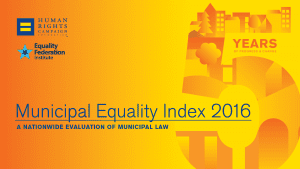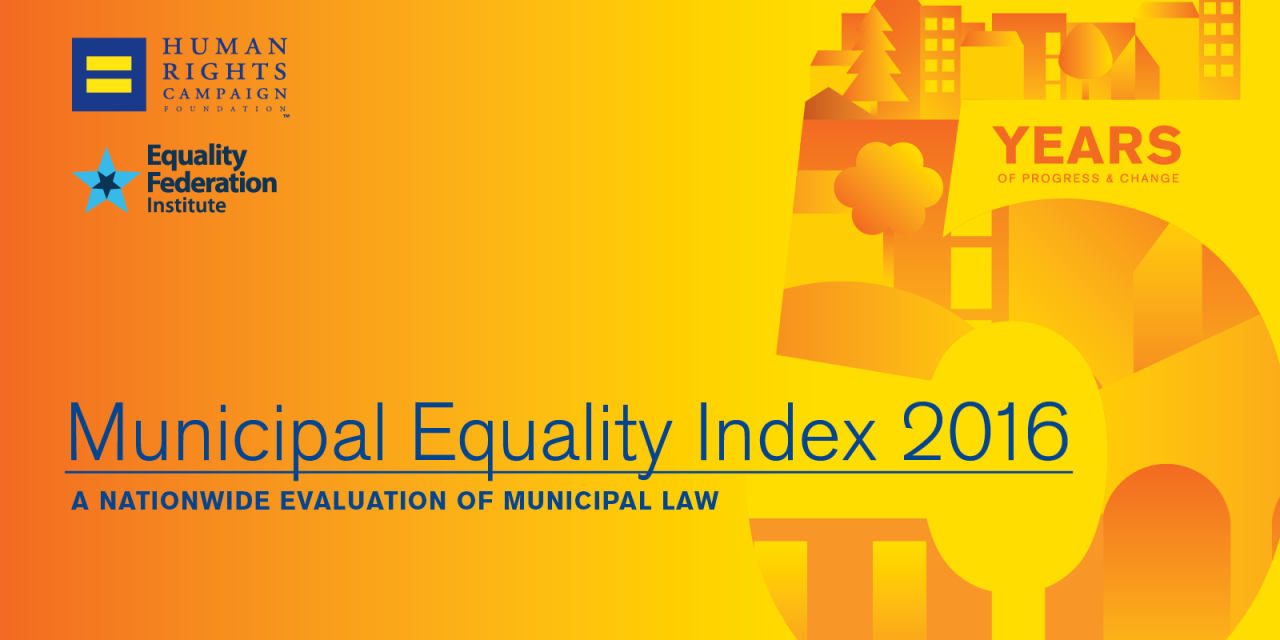 Dallas and Fort Worth have both received a score of 100 on the Human Rights Campaign’s Municipal Equality Index for the second year in a row. Austin was the only other city in Texas to receive the top score.
Dallas and Fort Worth have both received a score of 100 on the Human Rights Campaign’s Municipal Equality Index for the second year in a row. Austin was the only other city in Texas to receive the top score.
Houston scored 71. Much of its lower score is a result of its repeal by general election of the Houston Equal Rights Ordinance, which made Houston the largest city in the country without any local protections based on personal characteristics such as race, religion, gender, sex, sexual orientation, gender identity or any other category.
San Antonio’s score improved this year to a 95, Last year it received a 90.
Although 100 is the top score available, it is not considered a perfect score. Each of the seven categories have bonus points that a city can earn. Dallas, for example, does not have a human rights commission, which lost the city 5 points, but because there is an enforcement mechanism, the MEI credits Dallas with 2 bonus points.
Both Dallas and Fort Worth also lost 6 points for not having transgender-inclusive health benefits. Those benefits were among a list of changes recommended to the Fort Worth City Council by Fairness Fort Worth after the raid on the Rainbow Lounge that injured patrons. Fort Worth adopted all of the recommendations except trangender-inclusive health benefits.
Dallas received 2 bonus points for having LGBT elected or appointed officials. Fort Worth did not receive those points, even though it does have several appointed officials, including Sharon Herrera, who serves on the Human Relations Commission. That loss of bonus points didn’t affect the city’s final score.
All progressive cities in Texas received 4 bonus points for being “pro-equality despite restrictive state law.” That would include El Paso, which only scored 57, but not Houston, because of voter hostility.
Among Dallas suburbs, Plano received the highest score — 74 — and Irving, whose mayor was elected to keep Sharia law out of the city, earned 6 points for having an enumerated anti-bullying policy in its schools. Irving should have received a zero, however, because the school district doesn’t have an enumerated policy and balked when Rafael McDonnell from Resource Center tried to work with them to improve its policy after the “clock boy” incident.
Rating a city in Texas because of its school system is problematic. Dallas received all points based on Dallas Independent School District’s policies. A full quarter of the city of Dallas lies within Richardson ISD, however, and that school district has been hostile to its LGBT students in everything from resisting an enumerated anti-bullying policy to preventing students from forming gay-straight alliances.
Other DFW-area cities that were rated were Arlington — 44, Denton — 35, Garland — 22, Grand Prairie — 12 and Mesquite — 21.
Dallas and Fort Worth receive 100 on Municipal Equality Index

